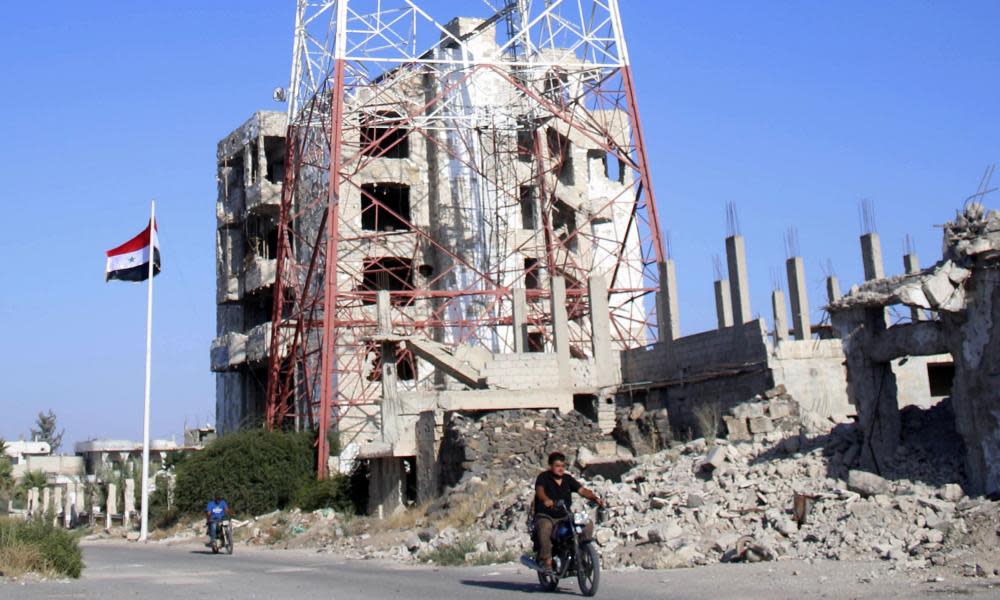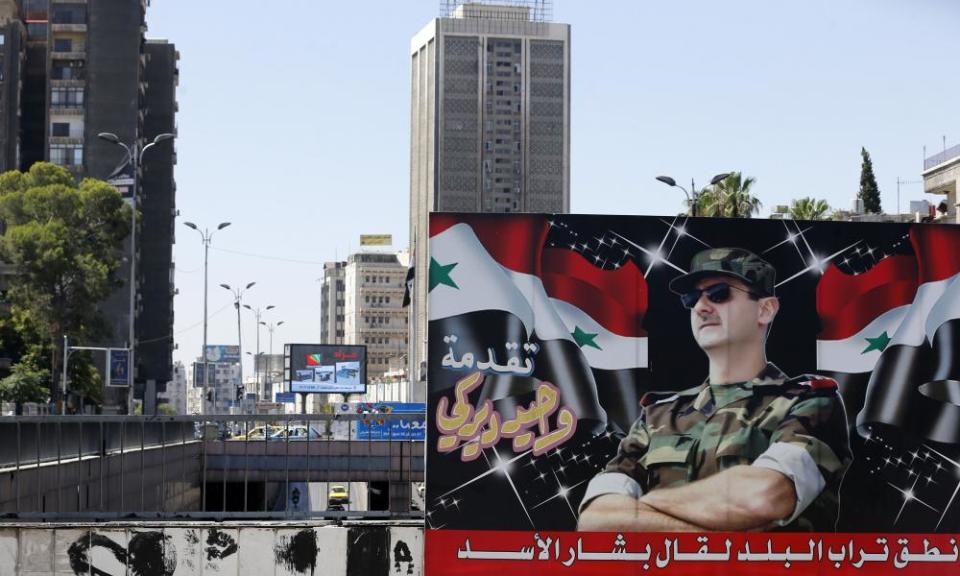The Observer view on the west’s duty to step in and help the victims of Assad

Bashar al-Assad did not expect to become Syria’s leader and it would have been better for all concerned if he had not. His elder brother, Bassel, was the preferred successor of their father, Hafez al-Assad, a three-time coup leader who had seized sole power in the “corrective revolution” of 1970. But Bassel was killed in a car crash in 1994 and Bashar was recalled from medical studies in London. From then on, he was groomed for the presidency and in 2000, when Hafez died (of natural causes), he was thrust into power, age 34.
The Observer is the world's oldest Sunday newspaper, founded in 1791. It is published by Guardian News & Media and is editorially independent.
The young Assad was described by contemporaries as a nerdy geek: shy, unambitious and uninterested in politics. There was a brief moment after he took office, dubbed the “Damascus spring”, when hopes flourished that the regime might loosen its repressive grip. The US saw a chance to break Syria’s cold war embrace of the Soviet Union and draw it into the western camp. But the opportunity was missed, reforms fizzled and Assad defaulted to the familiar paranoid, dictatorial style of governance.
To the surprise (and dismay) of many observers, Assad has grown to be a more pitilessly ruthless, durable leader than even his much-feared father. In 2005, when Lebanon’s former prime minister Rafik Hariri was assassinated, Assad was widely blamed. The killing triggered the “cedar revolution”, which ultimately forced the withdrawal of Syrian troops. “Losing” Lebanon was a humiliation Assad was not expected to survive. But survive he did, clinging to power with dogged tenacity.
Fast forward to the present day and the story has not changed. Seven years after the outbreak of a civil war that has claimed half-a-million lives, displaced 11 million people and sent shockwaves across the Middle East and Europe, Assad is still clinging stubbornly to power. Not only has he survived, he also seems to be winning. Last week, his forces seized control of Deraa, rebellious birthplace of the 2011 uprising, and symbolically raised the bedraggled flag of the Syrian Arab Republic.
Assad’s apparent victory – it hardly seem the right word to describe so bloody an outrage – is a hollow one, built on the corpses of his compatriots and their ruined cities and bought at the cost of Syria’s national integrity, wellbeing and independence. It marks a strategic defeat for the western democracies, which failed to stop the war, and a major advance for Russia, to which Assad outsourced a conflict he alone could not win. It is a calamity for the international rules-based order.

Whether the issue is the UN-endorsed legal “responsibility to protect”, the provision of sufficient humanitarian assistance, the authority of the UN security council or the ban on using chemical weapons, the world is the loser in Syria. A loser, too, is every citizen, whether living in Istanbul, Paris, Manchester or New York, who is deemed a target by fanatical jihadist groups, primarily Islamic State, to whom the Syrian chaos gave succour and opportunity.
The threat posed by terrorists holed up in eastern and north-west Syria is far from over, just as Assad’s victory is far from complete. Of immediate concern is the plight of 250,000 people who escaped from Deraa and are stranded in the desert, close to the Syrian and Israeli borders. As the regime’s offensive loomed last month, the US said it would not intervene, thereby abandoning the “de-escalation zone” it helped create last year and giving Russian bombers and Syrian forces free rein. Washington and its partners now have a clear duty to step in to rescue the victims of their dereliction.
Attention will soon turn to Idlib, in north-west Syria – the last rebel-held area and temporary home to more than 2 million people who have fled regime depredations. Idlib, not Deraa, may prove to be the final act. As in past years, the war criminal Assad will probably survive this awful denouement. How many others will not?

 Yahoo News
Yahoo News 
